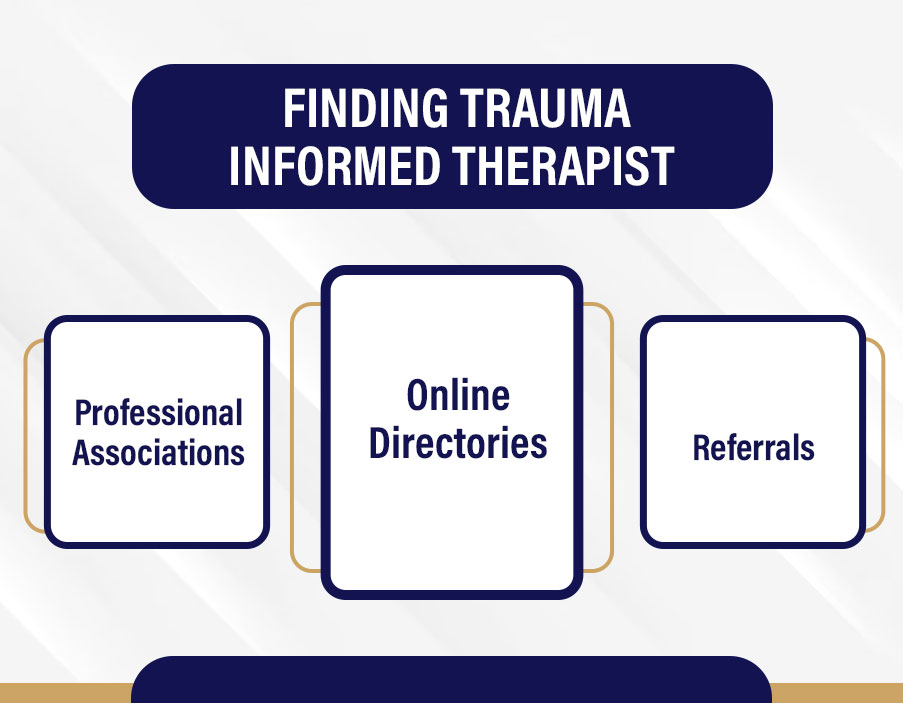
Trauma-informed therapy recognizes that everyone has been through trauma and tries to keep people from going through it again. Its goal is to find and treat all kinds of trauma. For the protection and provision of services to clients, this business strategy involves the implementation of trauma-informed principles in the policies, standard operating procedures, and practices.
Trauma is something that impacts almost everyone in their lifetime. Crisis can influence physical, emotional, and mental stability, thus having a profound impact on people. Historical treatment models may not be effective enough for the client’s demands; supposed methods cause re-traumatization.
The principles of trauma-informed therapy are crucial to recognizing and avoiding trauma and establishing an empowering and healthy environment. This therapy reconnects clients with their bodies and honors their trauma.
What is Trauma-Informed Therapy?
In trauma-informed therapy focuses on how trauma influences the mental health of clients. This is done in cognizance of how trauma impacts people and with the view of creating a secure therapeutic space.
The Principles of Trauma-Informed Therapy
Safety
Creating a physical and emotional environment where clients feel secure is paramount. This involves clear communication, respecting boundaries, and maintaining a calm and welcoming atmosphere.
Trustworthiness
Trustworthiness means being transparent with operations decisions, responding to matters with integrity, and being coherent and predictable. This helps the client feel comfortable and safely disposed of during therapy.
Peer Support
Fostering a sense of community and connection through shared experiences can be beneficial. While this principle is more applicable in group settings, individual therapists can still emphasize empathy and understanding.
Collaboration
Working collaboratively with clients involves shared decision-making and respecting their autonomy. Clients are encouraged to express their needs and preferences, which are incorporated into the therapy plan.
Empowerment
They emphasize supporting and validating clients’ rights for person-centered and self-directed care. This includes fostering self-potency and assisting clients to regain personal control over their bodies and healing procedures.
Cultural Sensitivity
It is recognizing and respecting the diverse backgrounds and cultural contexts of clients. This involves being aware of cultural differences and integrating this awareness into the therapeutic practice.
Differentiating Between Traditional and Trauma-Informed Therapy
Traditional therapy targets muscle tension, discomfort, and relaxation. While helpful, it may overlook trauma’s psychological and emotional effects.
In contrast, trauma-informed therapy considers trauma and its impacts. The therapist finds triggers and prioritizes client safety and control. This holistic approach addresses physical and emotional health.
Therapist's Role in Trauma Treatment
A therapist assists trauma patients to get well. They use a safe environment to reintroduce a client into their bodies. These therapists skillfully practice this kind of service, which standard therapy cannot provide while applying trauma-informed care.
Caring trauma therapists receive knowledge on the identification of trauma and appropriate responses to the same. They develop working relationships with them and honor the clients’ boundaries and their choice of therapies. It assists with the physical, emotional, and psychological recovery of the patient and is therefore critical whenever physical victimization is suspected.
Trauma-Informed Couples Therapy
Trauma-informed couples therapy addresses special relationship issues. It promotes partner understanding, communication, and healing.
Trauma-informed couples therapy incorporates trauma awareness. It rebuilds trust and intimacy when trauma affects individuals and relationships.
Finding Trauma-Informed Therapy Services

Online Directories
Finding trauma therapist starts with thorough research. The directories often include information about the therapist’s qualifications, specialties, and client reviews, helping you make an informed decision.
Professional Associations
Professional associations are excellent resources for finding qualified therapists. The associations ensure their members adhere to high standards of practice and continuous education.
Referrals
Referrals from trusted sources can be invaluable. Personal referrals can provide insights into the therapist’s approach, effectiveness, and bedside manner.
Collaborative Approaches in Trauma-Informed Therapy
This therapy is best when interdisciplinary. Combining with psychotherapy, medical care, and other holistic methods can promote healing. Doctors cure physical illnesses, whereas psychotherapists treat emotional ones. Wellness practices like yoga, meditation, and acupuncture help heal.
Support Network Building
Trauma-informed therapy requires strong support networks. Including family, support groups, and professionals ensures holistic treatment. Family can provide emotional support and understanding, while support groups provide community and shared experiences. Collaboration with dietitians and fitness coaches can address various health and well-being issues.








